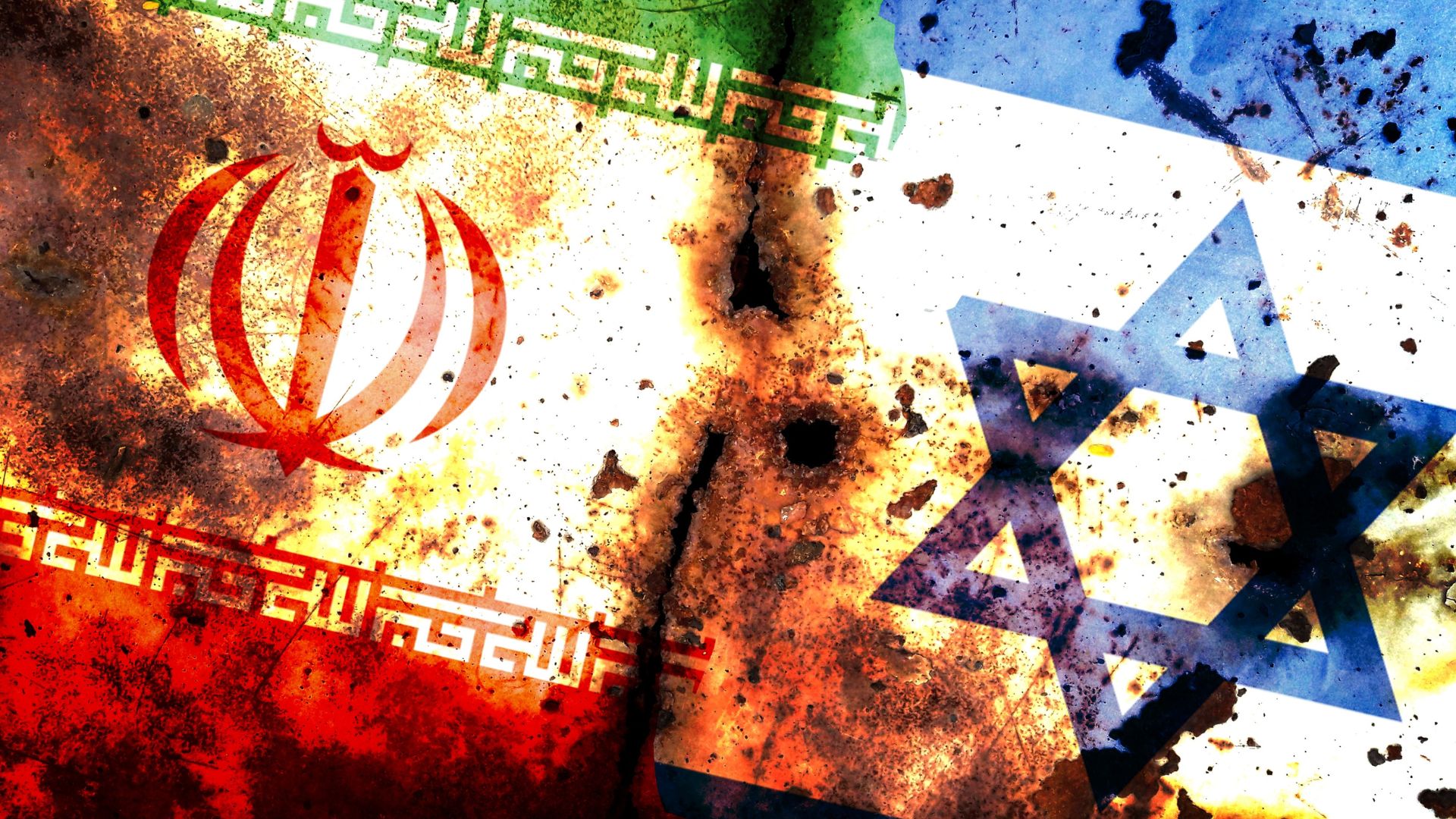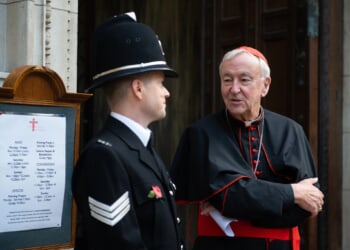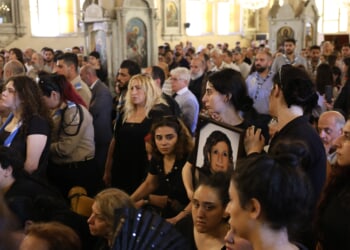
Public displays of opposition to Iran’s ruling regime are intensifying in the capital city of Tehran, as videos circulating online show Iranian citizens chanting in favor of the return of Crown Prince Reza Pahlavi and the fall of the Islamic Republic.
The chants, which include the slogan “This is the final battle — Pahlavi will return,” reflect a growing sentiment among dissidents who view the monarchy’s return as a potential pathway to a secular, democratic future.
🔴 Iran tonight:
People are chanting “This is the final battle, Pahlavi will return”. Cars are honking with excitement.
It’s hard to get videos out right now, but the vibe is shifting.
— 𝗡𝗶𝗼𝗵 𝗕𝗲𝗿𝗴 ♛ ✡︎ (@NiohBerg) June 17, 2025
Trump’s Sovereign Wealth Fund: What Could It Mean For Your Money?
Though the full extent of Israel’s recent military strikes on Iran is not confirmed, Iranian opposition voices say the moment has created new urgency and hope for regime change.
This Could Be the Most Important Video Gun Owners Watch All Year
Crown Prince Reza Pahlavi, the exiled son of the late Shah of Iran, confirmed that he has been in communication with Iranian military personnel and officials who have expressed support for a post-regime transition.
“We are prepared for the first hundred days after the fall, for the transitional period, and for the establishment of a national and democratic government — by the Iranian people and for the Iranian people,” he said in a statement shared with supporters.
Pahlavi condemned Iran’s Supreme Leader Ayatollah Ali Khamenei and the ruling clerics, describing their actions as violent, destructive, and cowardly.
He asserted that the regime’s downfall is inevitable and that opposition leaders are already preparing plans for Iran’s recovery and political reconstruction.
The Islamic Republic has come to its end and is collapsing. What has begun is irreversible. The future is bright, and together we will turn the page of history. Now is the time to stand up; the time to reclaim Iran. May I be with you soon. pic.twitter.com/qrbnDmf8SX
— Reza Pahlavi (@PahlaviReza) June 17, 2025
The remarks come amid renewed anti-government sentiment in Iran, particularly from those who have endured state crackdowns during previous waves of protests.
Demonstrations in recent years have led to thousands of arrests and widespread reports of abuse, including torture and sexual violence.
Many of those who survived now say they are hoping to see the Islamic Republic collapse in their lifetime.
Some Iranian dissidents, particularly women and ethnic minorities, have publicly voiced support for Israel in its ongoing conflict with the Iranian-backed axis.
Others have spoken out in favor of a return to a constitutional monarchy led by Pahlavi.
Support for the monarchy also extends to members of Iran’s Jewish diaspora.
A widely followed X account, “The Persian Jewess,” reflected on the Pahlavi dynasty’s historical treatment of Jews in Iran.
“Since the rise of Islam in Iran, Iranian Jews were oppressed, shoved in ghettos, raped, tortured, murdered, forced to convert, and treated like second-class citizens. Then in 1925 the Pahlavis came to power and instituted reforms that recognized Iranian Jews as equal citizens for the first time in millennia. For 54 glorious years, we flourished.”
She continued, “When Khomeini came to power, we were forced to flee, our hearts mourning all that Iran once was and could have been under the Pahlavis. And in the 46 years since, we have not forgotten the family who broke us free from our chains, and ended our oppression.”
Since the rise of Islam in Iran, Iranian Jews were oppressed, shoved in ghettos, raped, tortured, murdered forced to convert, and treated like second-class citizens.
Then in 1925 the Pahlavis came to power and instituted reforms that recognized Iranian Jews as equal citizens for… pic.twitter.com/HxK2dVyE5H
— The Persian Jewess (@persianjewess) June 17, 2025
According to Encyclopedia Iranica, the Pahlavi dynasty was responsible for implementing several civil rights reforms that improved the lives of Jews and other minorities in Iran.
Reza Shah, the founder of the Pahlavi dynasty, repealed longstanding discriminatory laws and granted religious minorities equal access to public services, education, military service, and business opportunities.
Although antisemitic attitudes remained entrenched in parts of Iranian society, government policy under the monarchy permitted Iranian Jews to integrate more fully into the broader population.
Under Pahlavi rule, Iranian Jews were able to live outside segregated districts, participate in commerce, and work in public institutions.
While Reza Shah and his son Mohammad Reza Pahlavi ruled with authoritarian tendencies, many Iranians — both Muslim and non-Muslim — remember the era as one of modernization, Western engagement, and increased civil liberties compared to the current Islamic regime.
Crown Prince Reza Pahlavi continues to advocate for a secular, Western-aligned government.
Though he does not currently reside in Iran, he has remained active in political advocacy and frequently issues public statements in support of Iranian protesters.
It remains to be seen whether internal unrest and external pressures will lead to a change in leadership in Iran, but the increasing visibility of Pahlavi and the growing public support for a post-Islamic Republic future signal that momentum is shifting.
🚨JUST IN: Trump APPROVES ATTACK PLANS against Iran🚨
The “GORILLA” is coming and the Ayatollah’s rushing into a BUNKER to hide.
The Iranians say they’re NOT SURRENDERING… they’re planning a TERROR ATTACK. pic.twitter.com/j6pKnPLfOH
— Jesse Watters (@JesseBWatters) June 19, 2025
Connect with Vetted Off-Duty Cops to Instantly Fulfill Your Security Needs

![Iran Now Wants to Talk After Israel Wipes Out Nuclear Sites [WATCH]](https://www.right2024.com/wp-content/uploads/2025/06/Iran-Now-Wants-to-Talk-After-Israel-Wipes-Out-Nuclear-750x375.jpg)


![Man Arrested After Screaming at Senators During Big Beautiful Bill Debate [WATCH]](https://www.right2024.com/wp-content/uploads/2025/06/Man-Arrested-After-Screaming-at-Senators-During-Big-Beautiful-Bill-350x250.jpg)












